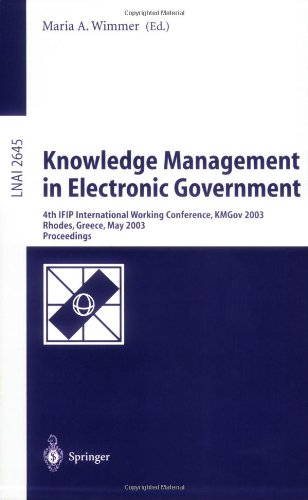

Most ebook files are in PDF format, so you can easily read them using various software such as Foxit Reader or directly on the Google Chrome browser.
Some ebook files are released by publishers in other formats such as .awz, .mobi, .epub, .fb2, etc. You may need to install specific software to read these formats on mobile/PC, such as Calibre.
Please read the tutorial at this link: https://ebookbell.com/faq
We offer FREE conversion to the popular formats you request; however, this may take some time. Therefore, right after payment, please email us, and we will try to provide the service as quickly as possible.
For some exceptional file formats or broken links (if any), please refrain from opening any disputes. Instead, email us first, and we will try to assist within a maximum of 6 hours.
EbookBell Team

4.1
30 reviewsThe importance of Knowledge Management (KM) is increasingly recognized in business and public sector domains. The latter is particularly suitable for KM implementations since it deals with information and knowledge resources at a large scale: much of the work of public authorities deals with the elaboration of data, information and knowledge on citizens, businesses, society, markets, the environment, law, politics, etc. Even most products of public administration and government work are delivered in the shape of information and knowledge themselves. This especially applies to policies, management, and the regulation and monitoring of society, markets and the environment. Governments expect advanced support from KM concepts and tools to exploit these huge knowledge and information resources in an efficient way. Not only does the trend towards a knowledge society call for KM solutions, but current e government developments also significantly influence the public sector. Ample access to remote information and knowledge resources is needed in order to facilitate: Citizen and businesses oriented service delivery, including one stop service provision; interorganizational co operation between governmental agencies; cross border support for complex administrative decision making; e government integration of dislocated information and knowledge sources into a fabric of global virtual knowledge.